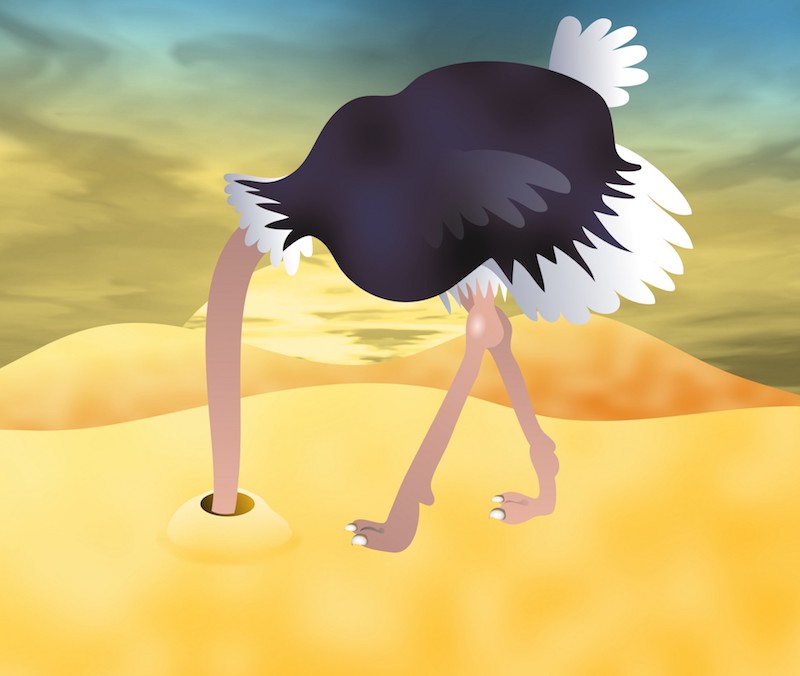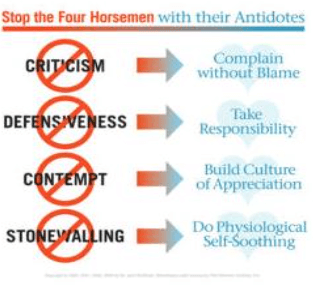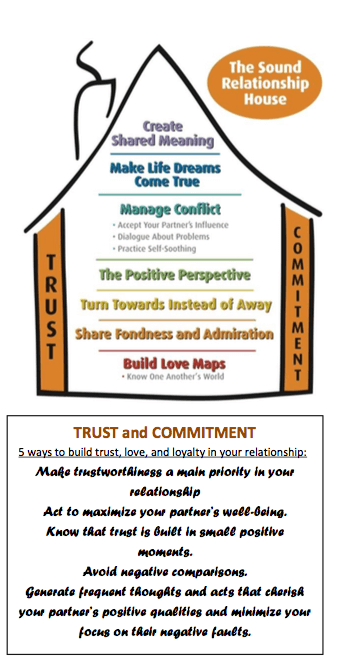The Ostrich Effect

Have you ever found yourself putting off something important? Something that you knew you needed to do but found reasons to avoid. Maybe you avoided checking your email for fear of what was inside, maybe not checking a debt balance or a bill or maybe you avoided going to the doctor for fear of unpleasant news.
Ostriches are famous for burying their heads in the sand to avoid predators, although this is a fictitious belief – ostriches don’t really do this. Like the apocryphal story of the ostrich, many of us will commonly bury our heads in the sand to avoid unpleasant experiences, even if those experiences are vital to leading a full, rich life.
The ostrich effect is a tendency to ignore important information when we feel overwhelmed, stressed or worried. In particular, people may delay acquiring information, even when doing so may improve their situation. One study even found that investors check their portfolios growth more frequently in a growth market than one that’s receding. It may be easier to pretend that the problem doesn’t exist than to deal with it, especially if we don’t feel like we have the cognitive resources or emotional capacity to be able to cope with the challenge ahead. We may be in a job that doesn’t fulfil or satisfy us, we may feel that we’re in a relationship with the wrong person, we may regret living in the city we move to, or maybe we’re questioning our sexuality or whether we are studying the right degree? Maybe we’re lacking meaning or purpose in our lives but we don’t know what to do so it’s easier to power on and “just get on with it” and pretend that we’re just doing “fine”.
These types of “problems” we have in life are difficult to talk about and finding the right person to have a discussion with can sometimes be challenging. We all fear people’s judgments, and we prefer to show the version of ourselves that is our “best selves” rather than admitting that things aren’t the way we expected.

In our society today, we are taught to think that we have “control” over our lives. When things go “wrong” or when we have “problems” we have a tendency to overestimate how much influence we have over outcomes. People who are self-critical believe that they got themselves into the mess that they are in, and therefore has the responsibility to get themselves out. When we feel like we are the problem it is more likely that we are going to bury our heads in the sand, to save “face” for as long as possible. However, what if we don’t actually have as much control over our lives than we think we do? What if sometimes stuff just happens and what we need to do is talk about it so that we can overcome our challenge?

If we think about it, businesses are run with groups of people, each person has a different task to do, people have meetings to talk about how each member is going on their particular task and each person is able to get help and feedback from other team members if they are struggling with their project. What if we were to have regular meetings with ourselves and the people we have in our lives? To check in and ask “what’s currently working for you?”, “what do you think you need to improve on?” “what are you finding most challenging”, “Is there anything you’re finding difficult to approach right now?”, “are you missing some important information”, “how can we get through this together?”. Checking in with others and getting and receiving feedback about our personal problems with the right people, can open up new doors to feel differently about our situation. Doing this regularly will decrease stress and prevent problems from getting worse.

When it’s an external problem that has guidelines to follow, objectives to meet and outcome to measure, it’s much easier to talk about because the problem is “out there” rather than something “inside” of us. But when it’s an internal problem, personal situations, difficult thoughts and feelings about life, work, relationships and our future, it’s much harder to articulate and express the issue in words, especially when we haven’t taken the time to process what’s going on for ourselves.
People have a tendency to “avoid” problems. Therefore use different types of methods to help them get rid of them. Some methods include:
-Over productivity: taking on too many new projects, excessively cleaning or exercising, having a regimented routine.
-Suppression: pushing difficult thoughts away, pretending that everything is okay.
-Numbing or Withdrawing: drinking more alcohol than usual, taking drugs, over eating, restrictive dieting, sleeping too much or too little.

The first step to change is to identify what avoidance strategy you are using. Once we admit that something is not working out we usually feel much better about ourselves and our situation because most of the time it’s not half as bad as we think it is. When we open up and talk to a trusted friend, colleague or professional a huge weight is lifted off our shoulders because we are actually dealing with the problem instead of pretending that it doesn’t exist. We all have problems, but most of us don’t like to admit or talk about. If we can stop burying our heads in the sand, open up and be honest to ourselves and others then maybe our lives will be filled with less stress, and only then we can truly experience a life filled with meaning and purpose.
It’s very common to ignore information to avoid unpleasant thoughts and feelings, but by burying our heads in the sand we do ourselves no favours, in fact we only deny ourselves the chance to grow, to be brave, and to be vulnerable with ourselves and others. Talk to those around you about the things you’re avoiding, and do your best to open up and accept that it might be unpleasant, but it’s in service to living your values – and being the kind of person you’d like to be.



